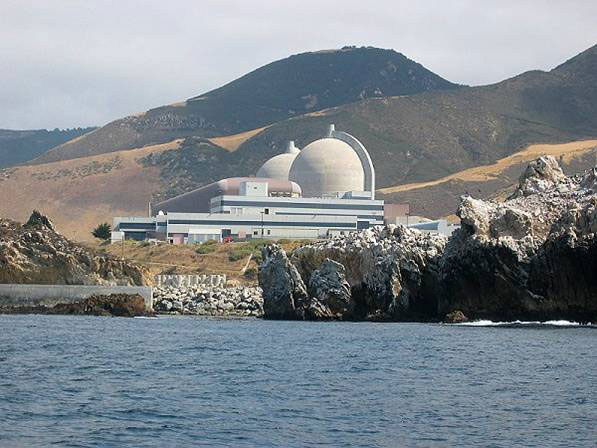PG&E takes next steps to continue operations at Diablo Canyon
 Plant would continue serving as, ‘carbon-free bridge’ while state brings online new clean energy resources
Plant would continue serving as, ‘carbon-free bridge’ while state brings online new clean energy resources
– Pacific Gas and Electric Company (PG&E) this week took another step on the path to relicensing Diablo Canyon Power Plant to support California’s transition to a “clean energy future.”
PG&E filed its first licensing action with the U.S. Nuclear Regulatory Commission (NRC) for renewing the operating licenses for the power plant’s units 1 and 2. PG&E must obtain the necessary licenses – as well as other required state regulatory approvals – to operate the plant’s two units beyond their current operating licenses, which expire in 2024 and 2025.
This request is aligned with new California energy policies that seek to preserve operations at DCPP in San Luis Obispo County beyond its current licensed operation period to improve statewide energy system reliability and reduce greenhouse gas emissions while additional renewable energy and carbon-free resources come online.
PG&E requests the NRC to designate the appropriate licensing process to follow, as the company withdrew its license renewal application in 2018 based on state energy policies at the time.
“We are proud of the role Diablo Canyon plays in providing safe, reliable, low-cost and carbon-free energy to our customers and Californians,” said Senior Vice President and Chief Nuclear Officer Paula Gerfen, “This request to renew our licenses is another step to help California reliably achieve its bold decarbonization goals. We will help deliver on those goals while continuing to run one of the top-performing plants in the country.”
In addition to the need for renewed licenses, the path for continued operations of the power plant past 2025 includes regulatory approvals from such entities as the U.S. Department of Energy, the California State Lands Commission, the California Energy Commission, the California Coastal Commission, and the California Public Utilities Commission.
The power plant can generate 2,200 megawatts of baseline electricity, and currently provides approximately 17% of California’s zero-carbon electricity supply and 8.6% of the state’s total electricity supply.
For more information, visit www.pge.com/.


 Plant would continue serving as, ‘carbon-free bridge’ while state brings online new clean energy resources
Plant would continue serving as, ‘carbon-free bridge’ while state brings online new clean energy resources


















